Are you finding it challenging to navigate the complexities of legal retainers? You're not alone! Many clients are often surprised by the nuances of retainer fee structures, especially when an increase is necessary to maintain quality representation. In our latest article, we delve into the reasons behind retainer fee adjustments and how to best approach the conversation with your legal teamâread on to equip yourself with the knowledge you need!
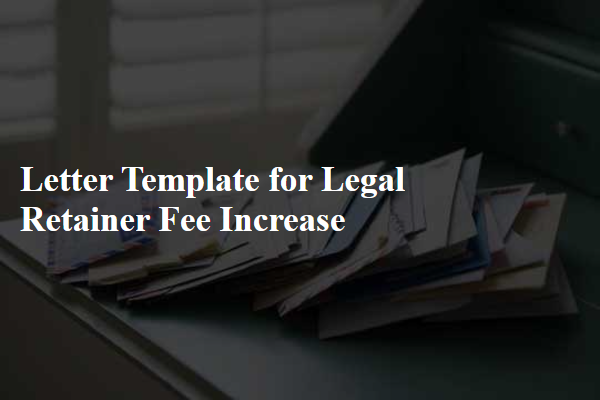
Introduction and Purpose of Letter
Legal retainer fees serve as an important financial arrangement between clients and law firms, ensuring that legal services are secured for ongoing representation. Increased operational costs, such as office overhead and staff salaries, necessitate periodic adjustments to retainer fees. Clients often rely on these arrangements for consistent legal support and advice, particularly in complex areas such as corporate law, intellectual property, and litigation practices. This letter aims to inform clients of the impending adjustment in retainer fees, reinforcing the commitment to high-quality legal services while ensuring the continued capability to address the evolving legal needs of clients effectively. Transparency during this process fosters trust and understanding regarding the necessity of fee updates in accordance with industry standards.
Explanation of Fee Increase
Legal retainer fees play a critical role in maintaining consistent legal representation for clients. Various factors contribute to the increase in these fees, including inflation rates within the legal industry, which have risen by approximately 3% annually over the last five years. Cost of living adjustments also influence the hourly rates of legal professionals, which can vary significantly by geographic location; for example, cities like New York and San Francisco often demand higher fees compared to smaller towns. Additionally, the complexity and demand for legal services continue to grow, particularly in areas like corporate law and intellectual property, leading to enhanced service offerings. Clients should consider the value of ongoing legal support, which ensures timely advice and representation as well as access to specialized knowledge that can mitigate risks and resolve disputes effectively.
Breakdown of New Fee Structure
The revised legal retainer fee structure presents a comprehensive overview of the new pricing arrangement, effective from January 1, 2024. The base retainer fee will increase from $2,000 to $2,500 per month, reflecting adjustments for inflation and increased operational costs. Additionally, hourly rates for legal counsel will rise to $300 from the previous rate of $250, with specific areas of expertise, such as corporate law and intellectual property, attracting an elevated rate of $400. A detailed billing statement will now outline expenses, including court filing fees, research costs, and travel expenses, ensuring transparency in the invoicing process. Clients will receive a quarterly review of retainer usage, allowing for better financial planning.
Effective Date of New Fees
Legal retainer fees can significantly impact law firm-client relationships, particularly when increases are implemented. Effective immediately, on October 1, 2023, new fee structures will take effect for services rendered by general practitioners in California. Clients should expect an adjustment of approximately 10%, reflecting rising overhead expenses and enhanced service quality. The firm's commitment to providing comprehensive legal representation remains strong, ensuring clients receive ongoing support for issues ranging from contract disputes to family law matters. This increase will allow the team to allocate more resources toward client needs, ensuring a higher standard of service and expert advice tailored to individual cases, especially in complex litigation scenarios.
Contact Information for Queries
Legal retainer fee increases can impact client relationships and expectations significantly. In a scenario where a law firm must adjust its fees, clear communication is crucial. The firm must provide contact information, such as a dedicated phone number and email address, where clients can inquire about the changes. The office location, typically a well-established area like downtown Chicago, can serve as a point of reference for in-person discussions. Transparency in the reasoning behind the retainer fee adjustment, along with a detailed explanation of the services covered, can alleviate client concerns. Providing a timeline for when the new fee structure takes effect is also essential to ensure clients are well-informed and prepared for the financial implications.

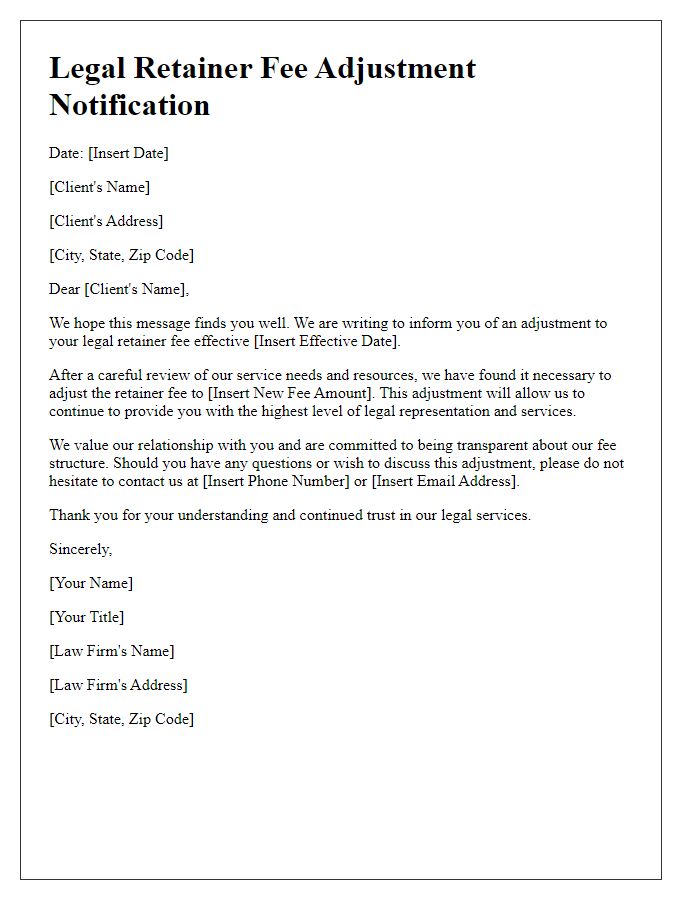
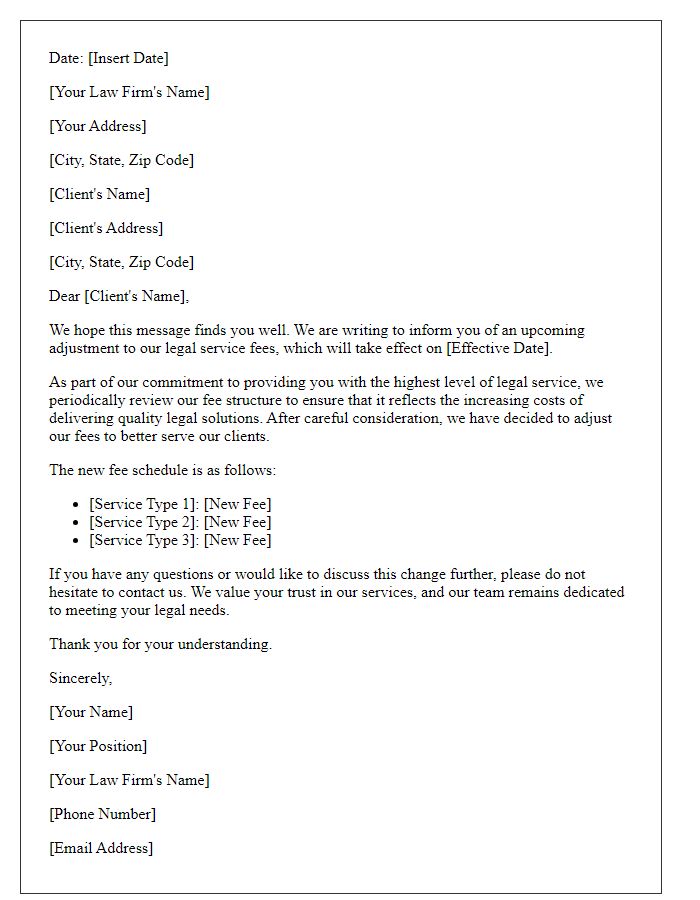
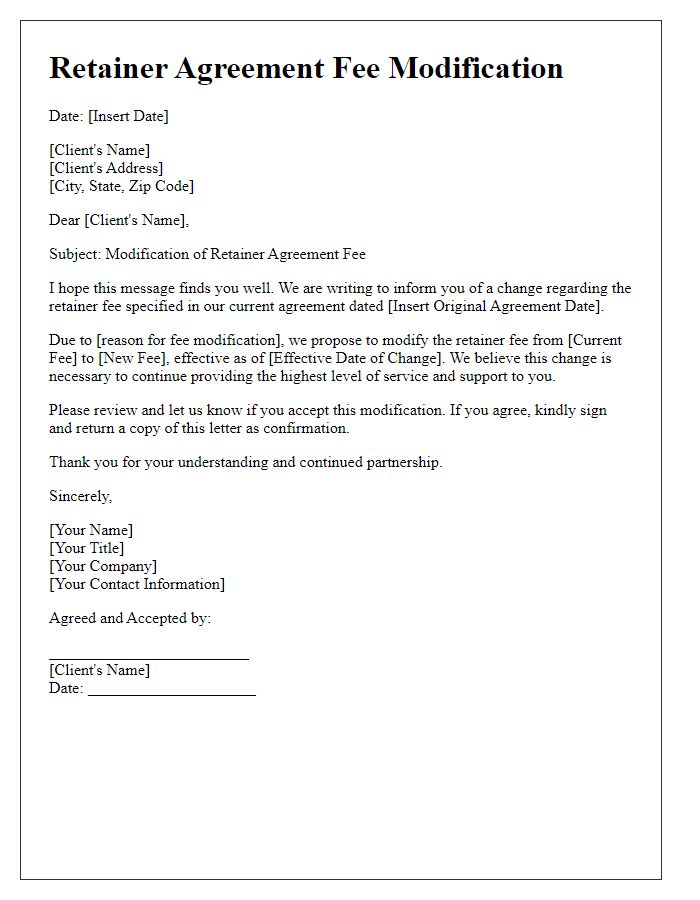
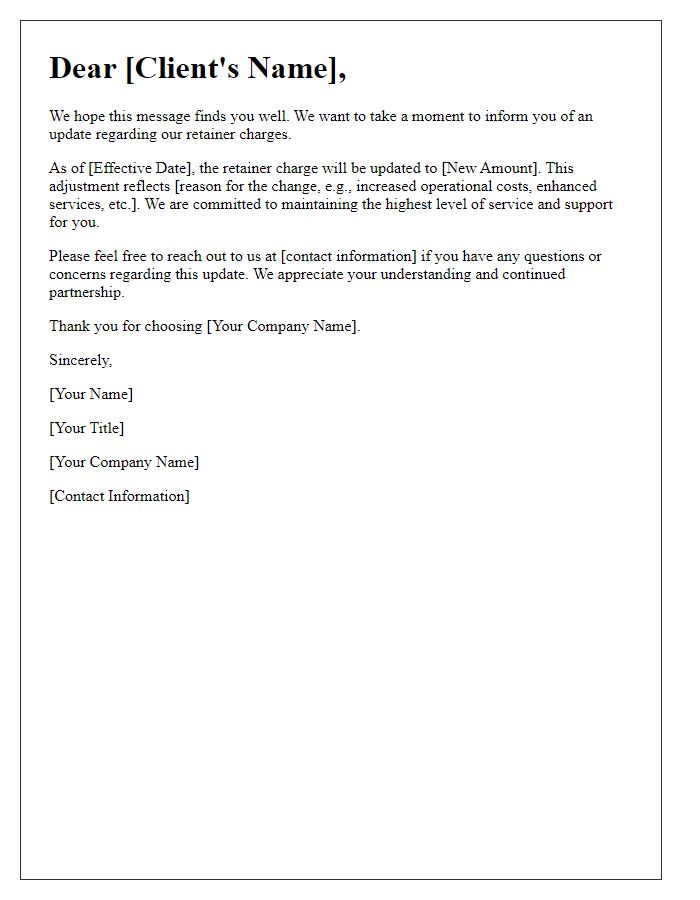
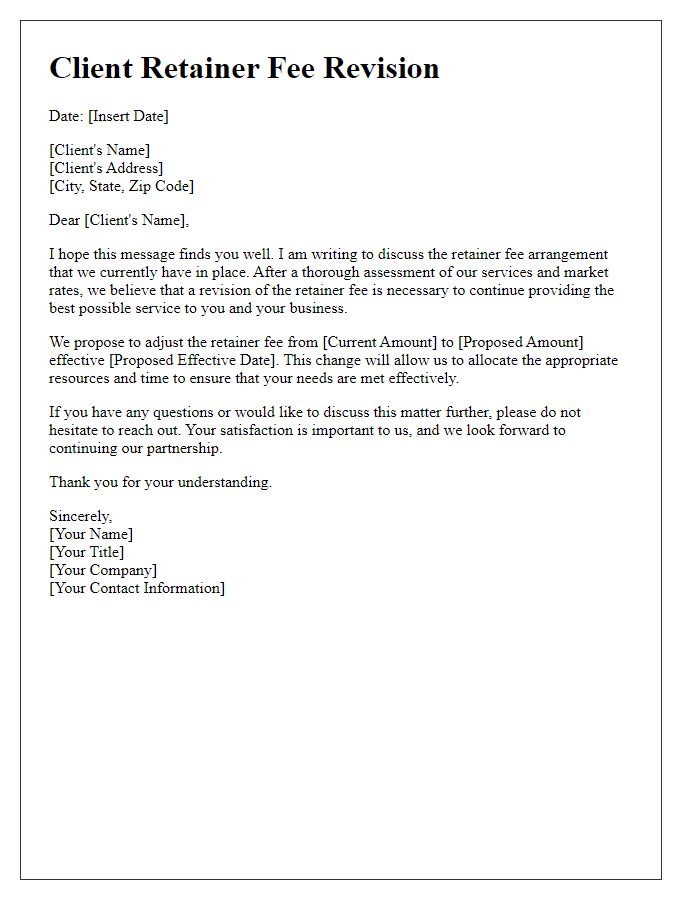
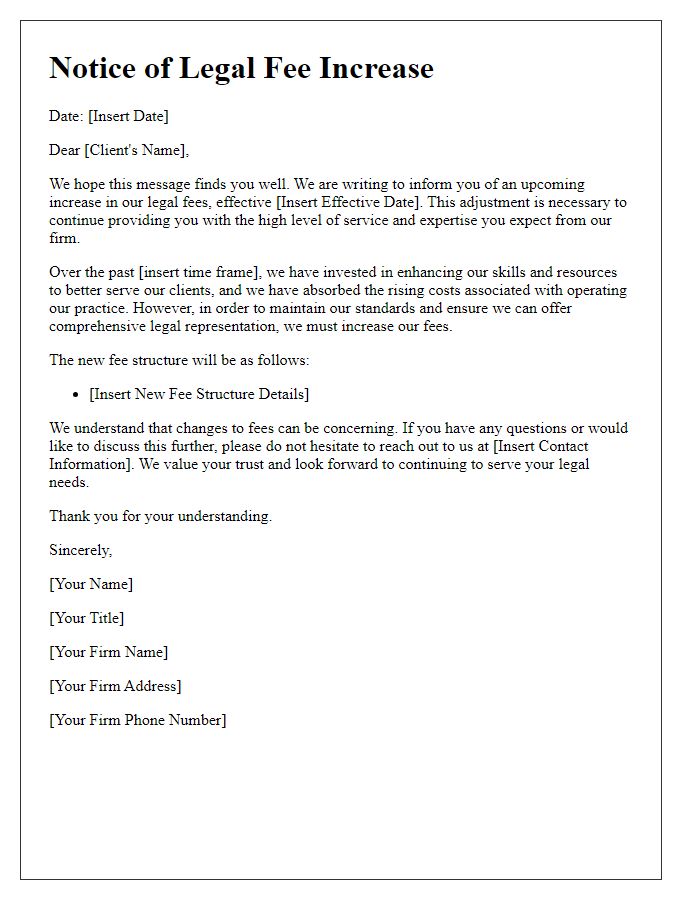
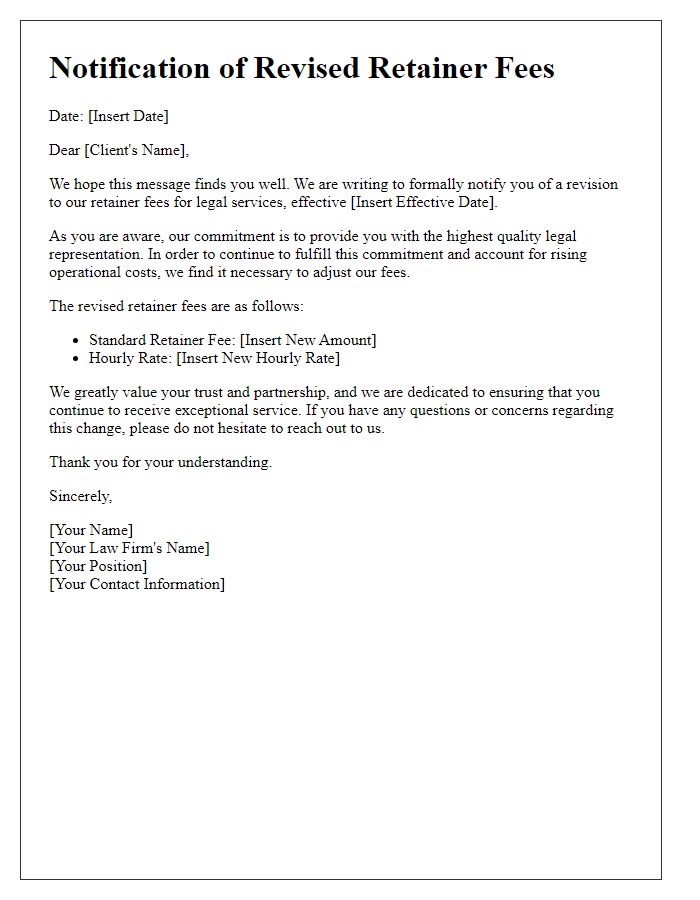
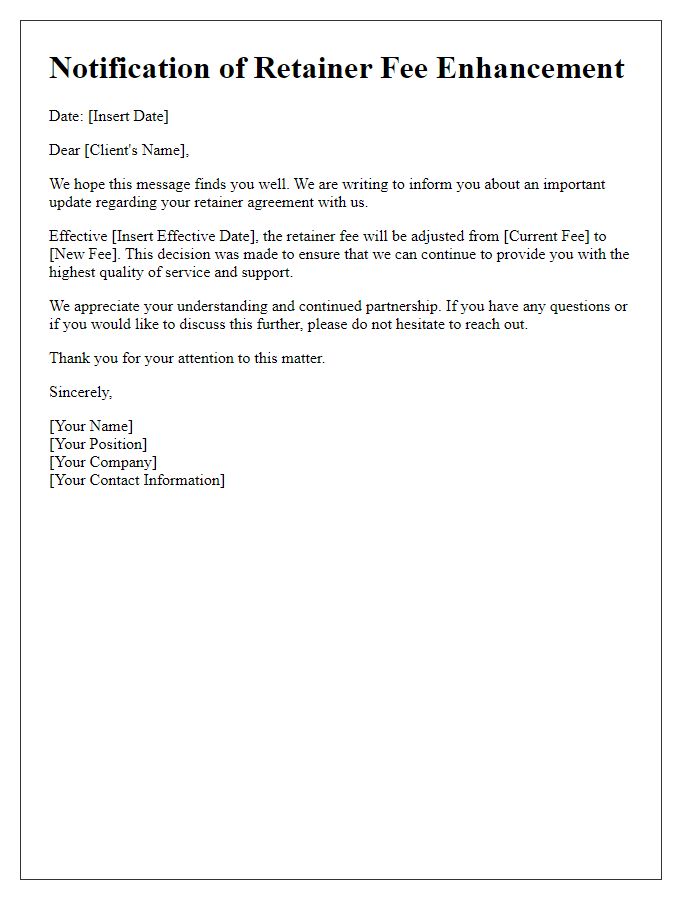
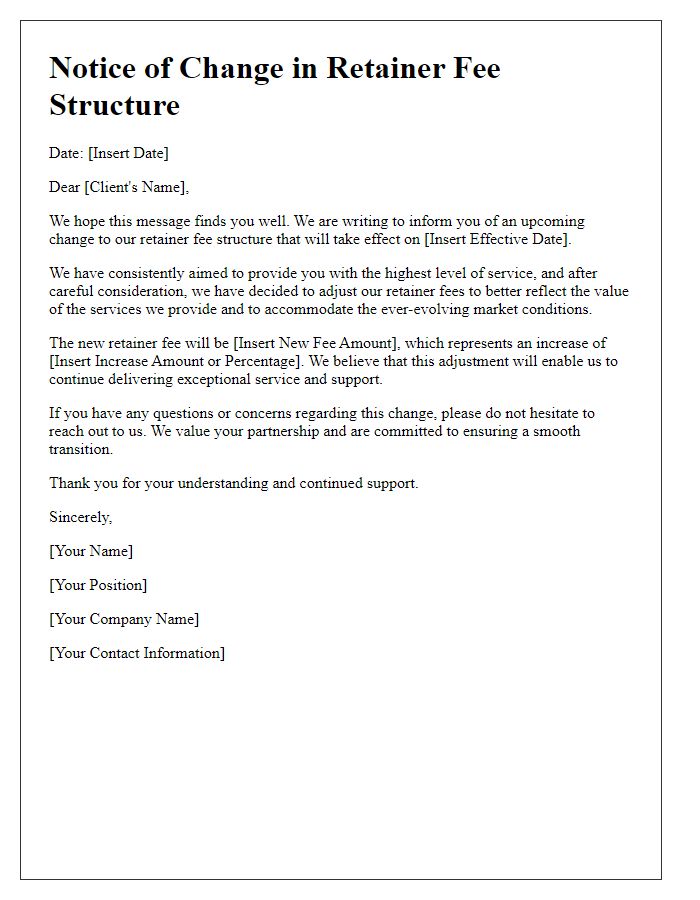



Comments